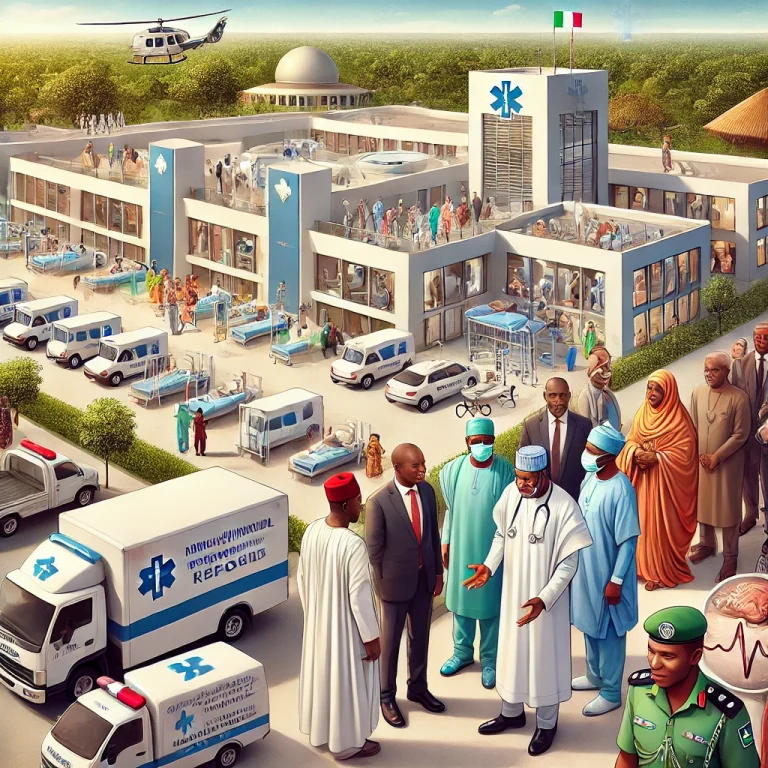The Kaduna State Government says it is set to implement the Sector-Wide Approach (SWAp) under its Health Sector Strategic Blueprint (HSSB), built on the principles of One Plan, One Budget, One Report, One Conversation, and One Voice.
Deputy Governor Dr. Hadiza Balarabe disclosed this at the opening of the 13th Kaduna State Council on Health, held at the Murtala Mohammed Square, Kaduna.
Balarabe said the unified approach ensures that every health intervention — from maternal care to disease control — aligns with one common goal: the health and dignity of the people.
She said the theme of the meeting, “Global Health Security: Strengthening Health Systems for Resilience in Kaduna State,” reflects current global realities where the health of one person can affect many.
“We live in an age where pandemics and disasters have tested the limits of our preparedness. From COVID-19 to outbreaks of zoonotic diseases and the threats of climate change, one message is clear — a strong and resilient health system is not a luxury; it is a lifeline,” she said.
Balarabe noted that the annual council meeting serves as a platform for policy reflection and renewed commitment to safeguarding citizens’ well-being.
According to her, the administration of Governor Uba Sani has shown unwavering commitment to reforming the health sector through several transformative policies since the last Council on Health in 2023.
She listed some of the key achievements, including the Human Resources for Health Policy and the Task Shifting and Sharing Policy, both aimed at improving access, quality, and efficiency of healthcare delivery across the state.
“We have revitalised primary health care facilities, strengthened accountability through the Mutual Accountability Framework, and aligned our health agenda with the Federal Government’s National Health Sector Renewal Investment Initiative (NHSRII),” she said.
Balarabe added that the government is implementing initiatives such as the Maternal Mortality Reduction Investment Initiative (MAMII) and the HOPE Project (Human Capital Opportunity for Prosperity and Equity) to improve the well-being of women, children, and vulnerable groups.
She said progress toward Universal Health Coverage (UHC) is being achieved through the Basic Health Care Provision Fund (BHCPF) and the State Health Contributory Scheme, ensuring that even the poorest citizens can access healthcare without financial hardship.
“Resilience is not about infrastructure alone; it’s about systems that bend but do not break — institutions that can absorb shocks, adapt swiftly, and continue to serve,” she stressed.
Balarabe emphasised the need for sustained investment in financing, technology, innovation, and human resources, as well as adopting a One Health Approach that recognises the link between human, animal, and environmental health.
She appreciated the support of development partners including the Bill & Melinda Gates Foundation, FCDO Lafiya Programme, UNICEF, and the World Health Organization (WHO) for their continuous partnership.
“Health is the heartbeat of development. A healthy child learns better, a healthy worker is more productive, and a healthy society can dream and achieve,” she added.
In her remarks, the Commissioner for Health, Umma Kaltum-Ahmed, said the ministry’s goal is to build an adaptive, responsive, and resilient health system capable of preventing, detecting, and responding to health threats while maintaining essential services.
She said the achievements recorded in the state’s health sector reflect the collective efforts of government, partners, professional bodies, and communities.
“Resilience is not built by words but by sustained action and collective ownership. This Council provides us a golden opportunity to think boldly and act decisively,” she stated.
The commissioner also commended Governor Uba Sani for his continuous investment in healthcare as a foundation for human capital development and social justice.
“Imagine a Kaduna State where every mother, child, and citizen can access quality healthcare without fear or delay. A health system that withstands crises and emerges stronger — that is our vision,” she said.
She also appreciated health workers, programme managers, and local government teams for their dedication to building a healthier Kaduna State.


